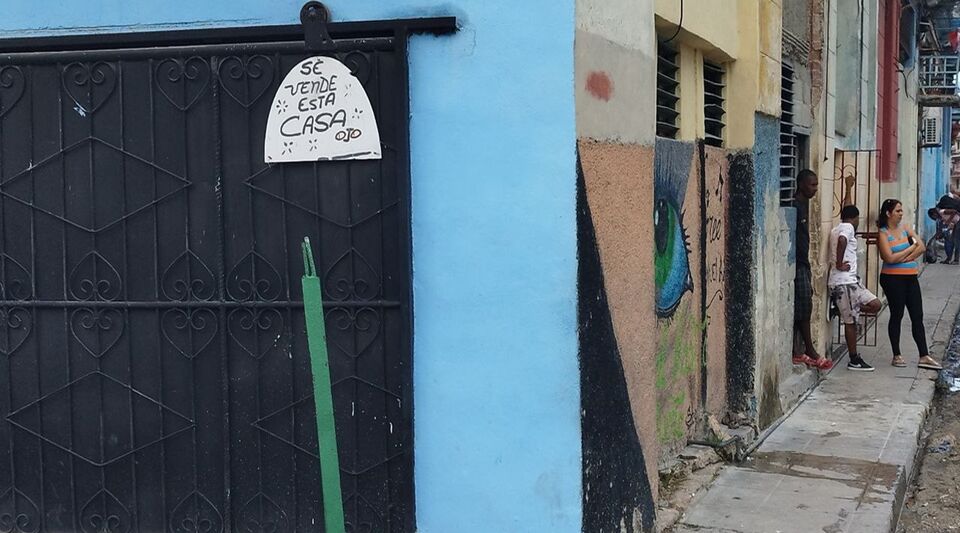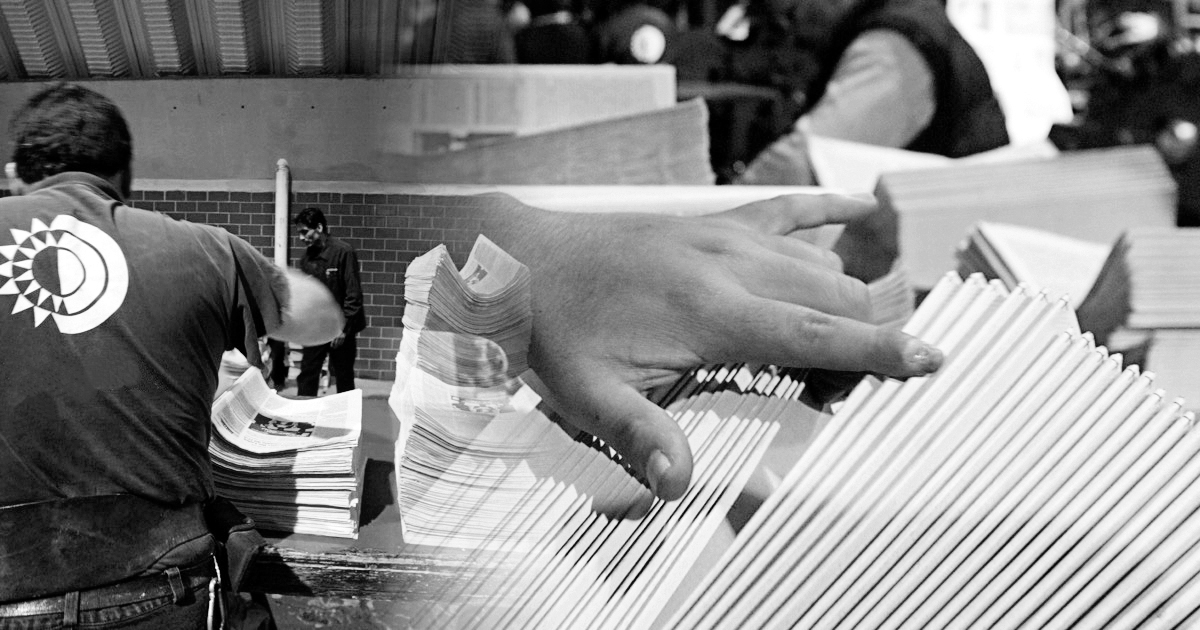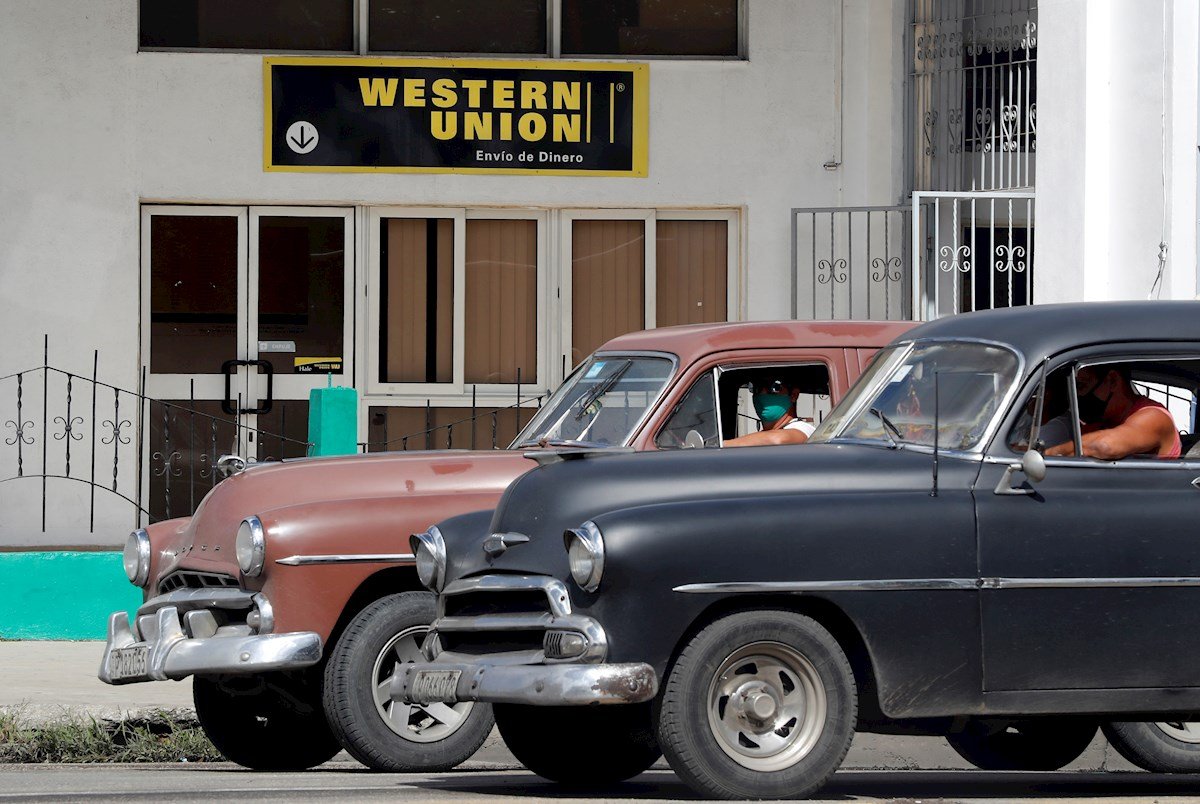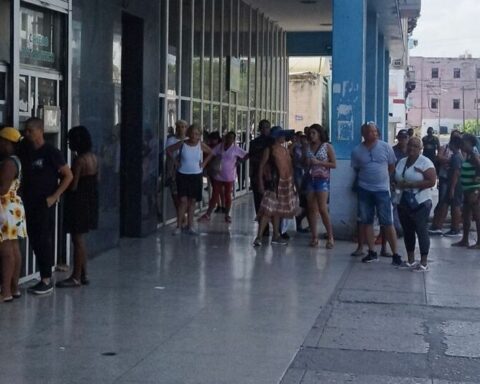“Business dried up,” says categorically Víctor Manuel Soto, 52, who liquidated his real estate agency in Cuba, packed his bags and left through Nicaragua until he reached the southern border of the United States, where he had just entered. “Almost no one is buying houses and out of every ten deals he ran, nine were from people desperate to sell.”
When at the end of 2011, after long decades of prohibition, the purchase and sale of homes on the Island was authorized, Soto and his wife saw a gold mine in the management of this type of operation, in a country where 85% of the homes are private property. “My wife left her job as an accountant in a state company, I asked to leave my position in the Ministry of Tourism and we began to set up our own business.”
At the beginning, they only offered classified services, organized according to the interests of the potential buyer, and they assured those who wanted to sell their houses to register them in the most important digital advertising sites. “Then we were consolidating a network of contacts and we could already offer something more complete, including facilitating the procedures in the notaries. Everything through the legal path, although much faster.”
But about four years ago, Soto began to notice that income was plummeting. “We had fewer and fewer people interested in buying, most of the clients who came to us were because they wanted to sell their house and they were in a hurry,” he told this newspaper. “Currently the supply exceeds the demand by several times, or to put it more simply, there are many houses for sale, but few interested buyers.”
“We had fewer and fewer people interested in buying, most of the clients who came to us were because they wanted to sell their house and they were in a hurry”
In a market like this, real estate prices fall and houses remain for sale for longer, with successive sales and increasingly frequent combinations such as including appliances and furniture in the offer. “Most of the people I knew who were in the real estate business have either gone out of business or gone into something else.”
The fall in prices has driven many buying and selling managers out of the picture. “In Havana, the average paid a few years ago for each room was between 10,000 and 12,000 dollars. An apartment with three rooms, for example, could be between 30,000 and 36,000 depending on the location and the state of construction,” he says. Nicia, a self-employed person who remains active in the real estate business.
In 2013, two years after authorizing the sale of homes, the emerging real estate market reached some 80,000 transactions, according to data offered at the time by the Directorate of the Registry of Mercantile Property and Heritage of the Ministry of Justice. Everything indicated that the number of operations would continue to grow or at least would remain at similar figures.
“Now, we’re seeing cases of three- or four-bedroom homes selling for under $25,000 because the owner is in a hurry to have the money to immigrate. When prices drop that low, we also lose the ability to make a profit. as intermediaries and facilitators of the operation”, he laments.
“The highest peak, when houses in Cuba cost more, after the sale was allowed, was around 2015 and 2016. Real estate companies made good money, but that bubble burst. Now to earn a dollar you have to work ten times more and it’s still difficult,” he adds. “A few years ago we had many foreign clients buying through friends or couples in Cuba, now there are fewer and fewer.”
“Now, we are seeing cases of three- or four-bedroom homes that are selling for less than $25,000, because the owner is in a hurry to have the money to emigrate.”
Nicia remembers that in March 2016, when Barack Obama visited the Island, in just one month he managed to close six sales and at least two of them involved Cuban-Americans or Europeans. “There was an idea that the country was opening up and that it was time to buy a property here, but that enthusiasm has been waning. Right now, I have a couple of houses that I sold that year back up for sale.”
“To be able to sell you have to add many attractions, the low price is one of them but also if the house is ready to live in without making arrangements or without having to furnish it, because they already come with everything included,” he lists. “The few clients that I have now interested in buying are because they managed to sell bigger houses and they want to buy a house where they don’t have to put a nail in.”
Nicia herself feels that her work as a real estate manager has its days numbered. “I am hoping to collect the money that I need to be able to leave with my two children for Spain because the three of us have Spanish nationality but we need to disembark there with some money to start a new life.” Her business will leave it in the hands of a cousin but “it’s already worth very little, because the housing market is drowning.”
“I also give you a headache, because this field is complicated, many of the first real estate companies that operated under a swap manager license were forced to close and I have colleagues who ended up in court for charging the client a commission on the transaction “, something prohibited by law, although in practice these managers pocket between 10% and 25% of the total amount paid by the buyer.
“The increase in sales taxes was also quite a blow to us,” Nicia acknowledges. Initially, the authorities determined a 4% tax on the transfer of assets and inheritances to those who bought and on personal income to those who sold, but in 2017 the payment was modified upwards, which is now established by the characteristics of the house, such as location and size.
“I am hoping to collect the money that I need to be able to leave with my two children for Spain because the three of us have Spanish nationality but we need to disembark there with some money”
“Between the rise in taxes, the exhaustion of the market itself with very few buyers and the fact that most of those who sell want to be paid in dollars and put the money abroad, our profits have been getting more and more small. Only real estate companies are surviving that, although they do not say it publicly, are connected with government people or with foreigners who have money to wait for better times.”
Some startups of this type have promoted initiatives to attract buyers, such as an “auction” program in which the house goes on the market with a price that can change in a bid on-line. Among them is Lucas Inmobiliarias, which has a wide catalog of chalets, mansions and farms with prices that, in most cases, exceed $100,000. However, of the four auctions currently open on its digital site, none has even received an offer from a buyer.
The Lucas Real Estate website is full of ads. Pages and pages with photos of large buildings, gardens with leafy trees and even swimming pools that invite you to take a dip. But their offers published in classified portals are repeated for months despite the fact that, from time to time, the price of homes is lowered. A house in Miramar, an architecture design award in the 50s, has been on sale for two years and is still there.
________________________
Collaborate with our work:
The team of 14ymedio He is committed to doing serious journalism that reflects the reality of deep Cuba. Thank you for accompanying us on this long road. We invite you to continue supporting us, but this time becoming a member of our newspaper. Together we can continue transforming journalism in Cuba.








